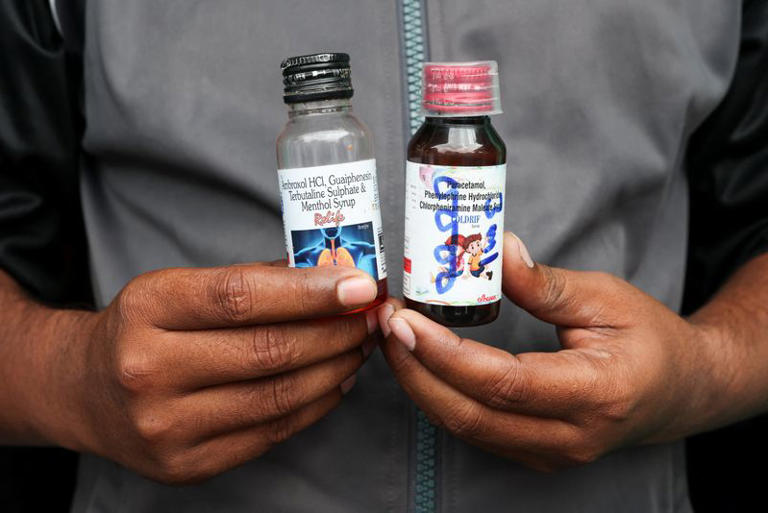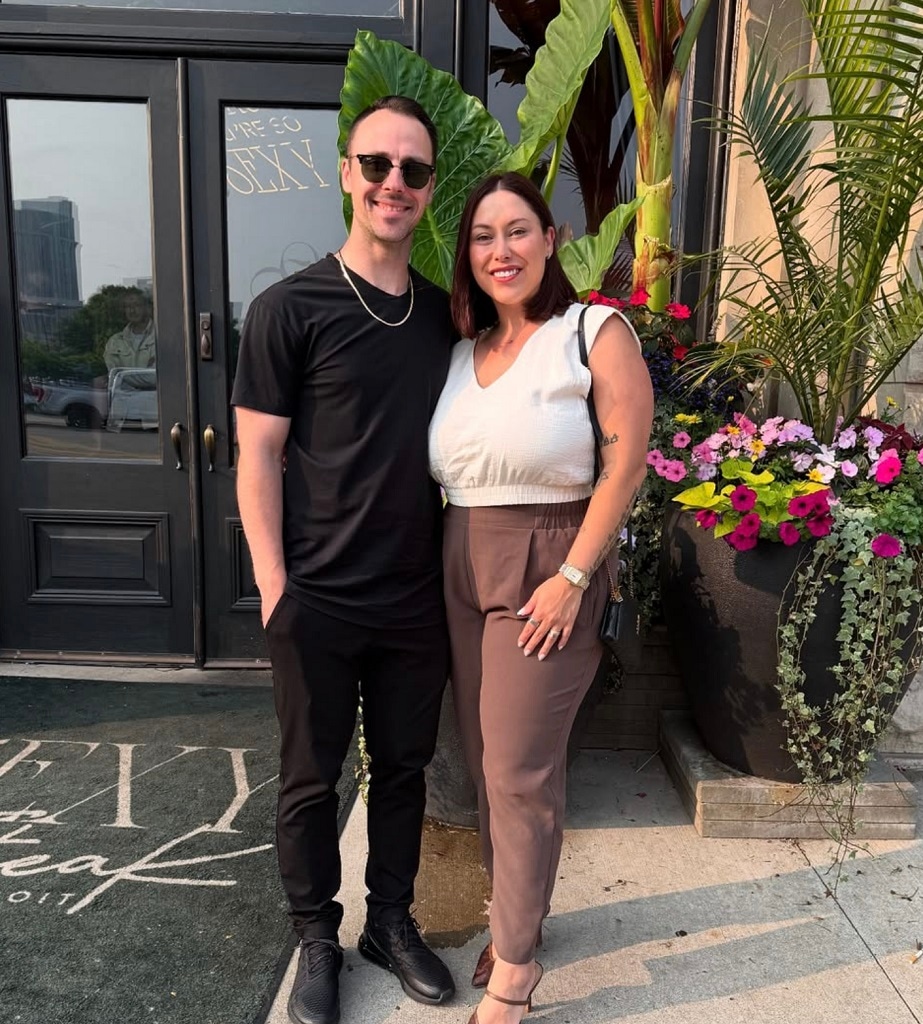 The World Health Organization (WHO) on Monday, October 13, issued a medical product alert for three cough and cold syrups identified in India, advising national regulators worldwide to notify the agency if the medicines are found in their markets and to step up targeted surveillance, especially in informal supply chains. The affected products are specific batches of Coldrif (Sresan Pharmaceutical), Respifresh TR (Rednex Pharmaceuticals), and ReLife (Shape Pharma). Indias Central Drugs Standard Control Organization (CDSCO) told WHO on October 8, 2025 that laboratory tests detected diethylene glycol (DEG) in at least three oral liquid medicines, with the toxic solvent present at levels nearly 500 times the permissible limit. CDSCO said the syrups were reportedly consumed by children under five who recently died in Chhindwara, Madhya Pradesh. WHOs alert notes the products are oral liquid medicines containing active ingredients commonly used to relieve symptoms of the common cold, flu, or cough. It adds: The contaminated products pose significant risks to patients and can cause severe and potentially life-threatening illness. Diethylene glycol is toxic to humans when consumed and can prove fatal. The agency stresses the syrups are substandard because they fail to meet their quality standards and their specifications, warning that use, especially in children, may result in serious injury or death. According to CDSCO, state authorities have halted production at implicated sites, suspended product authorisations, and initiated recalls. The regulator also informed WHO that none of the contaminated medicines have been exported from India, and there is no evidence of illegal export. Even so, WHO is urging National Regulatory Authorities to consider targeted market surveillance, particularly for any oral liquid medicines from the same manufacturing sites since December 2024. WHO outlines potential toxic effects of DEG ingestion, including abdominal pain, vomiting, diarrhoea, inability to pass urine, headache, altered mental state, and acute kidney injury, which may be fatal. It emphasizes the need to detect and remove the products from circulation and calls on healthcare workers to report detections or adverse events to their national pharmacovigilance systems. The agencys advice to the public is unequivocal: If you are in possession of any of these products, WHO recommends that you do not use them. If you, or someone you know, has, or may have, used these products, or suffered an adverse event or unexpected side-effect after use, seek immediate medical advice from a health-care professional or contact a poisons control centre. It further reminds consumers that All medical products must be obtained from authorised/licensed suppliers, and asks anyone with information on manufacture or supply to contact rapidalert@who.int.The post WHO warns of contaminated cough syrups in India linked to 17 child de@ths appeared first on Linda Ikeji Blog.
The World Health Organization (WHO) on Monday, October 13, issued a medical product alert for three cough and cold syrups identified in India, advising national regulators worldwide to notify the agency if the medicines are found in their markets and to step up targeted surveillance, especially in informal supply chains. The affected products are specific batches of Coldrif (Sresan Pharmaceutical), Respifresh TR (Rednex Pharmaceuticals), and ReLife (Shape Pharma). Indias Central Drugs Standard Control Organization (CDSCO) told WHO on October 8, 2025 that laboratory tests detected diethylene glycol (DEG) in at least three oral liquid medicines, with the toxic solvent present at levels nearly 500 times the permissible limit. CDSCO said the syrups were reportedly consumed by children under five who recently died in Chhindwara, Madhya Pradesh. WHOs alert notes the products are oral liquid medicines containing active ingredients commonly used to relieve symptoms of the common cold, flu, or cough. It adds: The contaminated products pose significant risks to patients and can cause severe and potentially life-threatening illness. Diethylene glycol is toxic to humans when consumed and can prove fatal. The agency stresses the syrups are substandard because they fail to meet their quality standards and their specifications, warning that use, especially in children, may result in serious injury or death. According to CDSCO, state authorities have halted production at implicated sites, suspended product authorisations, and initiated recalls. The regulator also informed WHO that none of the contaminated medicines have been exported from India, and there is no evidence of illegal export. Even so, WHO is urging National Regulatory Authorities to consider targeted market surveillance, particularly for any oral liquid medicines from the same manufacturing sites since December 2024. WHO outlines potential toxic effects of DEG ingestion, including abdominal pain, vomiting, diarrhoea, inability to pass urine, headache, altered mental state, and acute kidney injury, which may be fatal. It emphasizes the need to detect and remove the products from circulation and calls on healthcare workers to report detections or adverse events to their national pharmacovigilance systems. The agencys advice to the public is unequivocal: If you are in possession of any of these products, WHO recommends that you do not use them. If you, or someone you know, has, or may have, used these products, or suffered an adverse event or unexpected side-effect after use, seek immediate medical advice from a health-care professional or contact a poisons control centre. It further reminds consumers that All medical products must be obtained from authorised/licensed suppliers, and asks anyone with information on manufacture or supply to contact rapidalert@who.int.The post WHO warns of contaminated cough syrups in India linked to 17 child de@ths appeared first on Linda Ikeji Blog. WHO warns of contaminated cough syrups in India linked to 17 child de@ths
 The World Health Organization (WHO) on Monday, October 13, issued a medical product alert for three cough and cold syrups identified in India, advising national regulators worldwide to notify the agency if the medicines are found in their markets and to step up targeted surveillance, especially in informal supply chains. The affected products are specific batches of Coldrif (Sresan Pharmaceutical), Respifresh TR (Rednex Pharmaceuticals), and ReLife (Shape Pharma). Indias Central Drugs Standard Control Organization (CDSCO) told WHO on October 8, 2025 that laboratory tests detected diethylene glycol (DEG) in at least three oral liquid medicines, with the toxic solvent present at levels nearly 500 times the permissible limit. CDSCO said the syrups were reportedly consumed by children under five who recently died in Chhindwara, Madhya Pradesh. WHOs alert notes the products are oral liquid medicines containing active ingredients commonly used to relieve symptoms of the common cold, flu, or cough. It adds: The contaminated products pose significant risks to patients and can cause severe and potentially life-threatening illness. Diethylene glycol is toxic to humans when consumed and can prove fatal. The agency stresses the syrups are substandard because they fail to meet their quality standards and their specifications, warning that use, especially in children, may result in serious injury or death. According to CDSCO, state authorities have halted production at implicated sites, suspended product authorisations, and initiated recalls. The regulator also informed WHO that none of the contaminated medicines have been exported from India, and there is no evidence of illegal export. Even so, WHO is urging National Regulatory Authorities to consider targeted market surveillance, particularly for any oral liquid medicines from the same manufacturing sites since December 2024. WHO outlines potential toxic effects of DEG ingestion, including abdominal pain, vomiting, diarrhoea, inability to pass urine, headache, altered mental state, and acute kidney injury, which may be fatal. It emphasizes the need to detect and remove the products from circulation and calls on healthcare workers to report detections or adverse events to their national pharmacovigilance systems. The agencys advice to the public is unequivocal: If you are in possession of any of these products, WHO recommends that you do not use them. If you, or someone you know, has, or may have, used these products, or suffered an adverse event or unexpected side-effect after use, seek immediate medical advice from a health-care professional or contact a poisons control centre. It further reminds consumers that All medical products must be obtained from authorised/licensed suppliers, and asks anyone with information on manufacture or supply to contact rapidalert@who.int.The post WHO warns of contaminated cough syrups in India linked to 17 child de@ths appeared first on Linda Ikeji Blog.
The World Health Organization (WHO) on Monday, October 13, issued a medical product alert for three cough and cold syrups identified in India, advising national regulators worldwide to notify the agency if the medicines are found in their markets and to step up targeted surveillance, especially in informal supply chains. The affected products are specific batches of Coldrif (Sresan Pharmaceutical), Respifresh TR (Rednex Pharmaceuticals), and ReLife (Shape Pharma). Indias Central Drugs Standard Control Organization (CDSCO) told WHO on October 8, 2025 that laboratory tests detected diethylene glycol (DEG) in at least three oral liquid medicines, with the toxic solvent present at levels nearly 500 times the permissible limit. CDSCO said the syrups were reportedly consumed by children under five who recently died in Chhindwara, Madhya Pradesh. WHOs alert notes the products are oral liquid medicines containing active ingredients commonly used to relieve symptoms of the common cold, flu, or cough. It adds: The contaminated products pose significant risks to patients and can cause severe and potentially life-threatening illness. Diethylene glycol is toxic to humans when consumed and can prove fatal. The agency stresses the syrups are substandard because they fail to meet their quality standards and their specifications, warning that use, especially in children, may result in serious injury or death. According to CDSCO, state authorities have halted production at implicated sites, suspended product authorisations, and initiated recalls. The regulator also informed WHO that none of the contaminated medicines have been exported from India, and there is no evidence of illegal export. Even so, WHO is urging National Regulatory Authorities to consider targeted market surveillance, particularly for any oral liquid medicines from the same manufacturing sites since December 2024. WHO outlines potential toxic effects of DEG ingestion, including abdominal pain, vomiting, diarrhoea, inability to pass urine, headache, altered mental state, and acute kidney injury, which may be fatal. It emphasizes the need to detect and remove the products from circulation and calls on healthcare workers to report detections or adverse events to their national pharmacovigilance systems. The agencys advice to the public is unequivocal: If you are in possession of any of these products, WHO recommends that you do not use them. If you, or someone you know, has, or may have, used these products, or suffered an adverse event or unexpected side-effect after use, seek immediate medical advice from a health-care professional or contact a poisons control centre. It further reminds consumers that All medical products must be obtained from authorised/licensed suppliers, and asks anyone with information on manufacture or supply to contact rapidalert@who.int.The post WHO warns of contaminated cough syrups in India linked to 17 child de@ths appeared first on Linda Ikeji Blog. 
.png) 8 hours ago
1
8 hours ago
1







